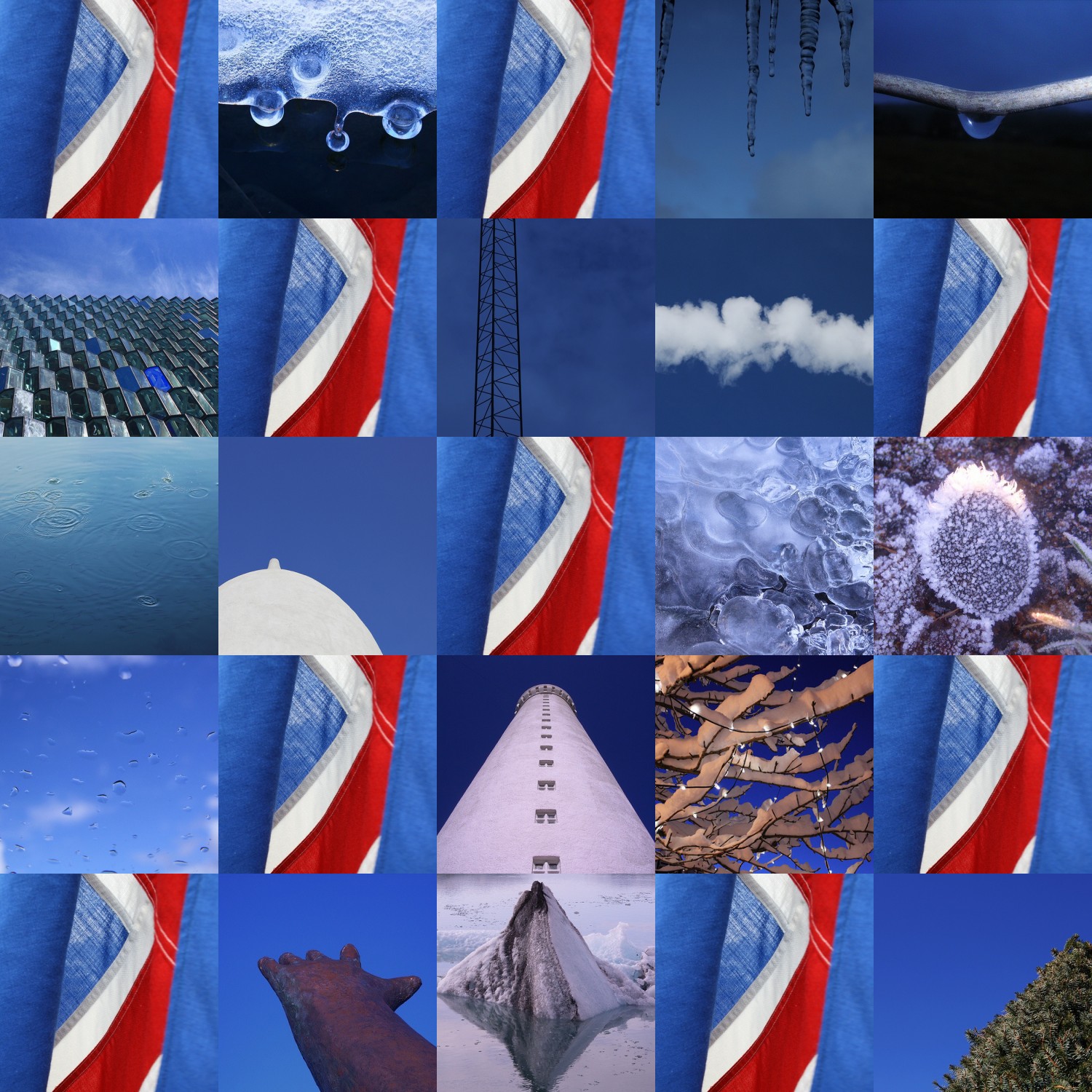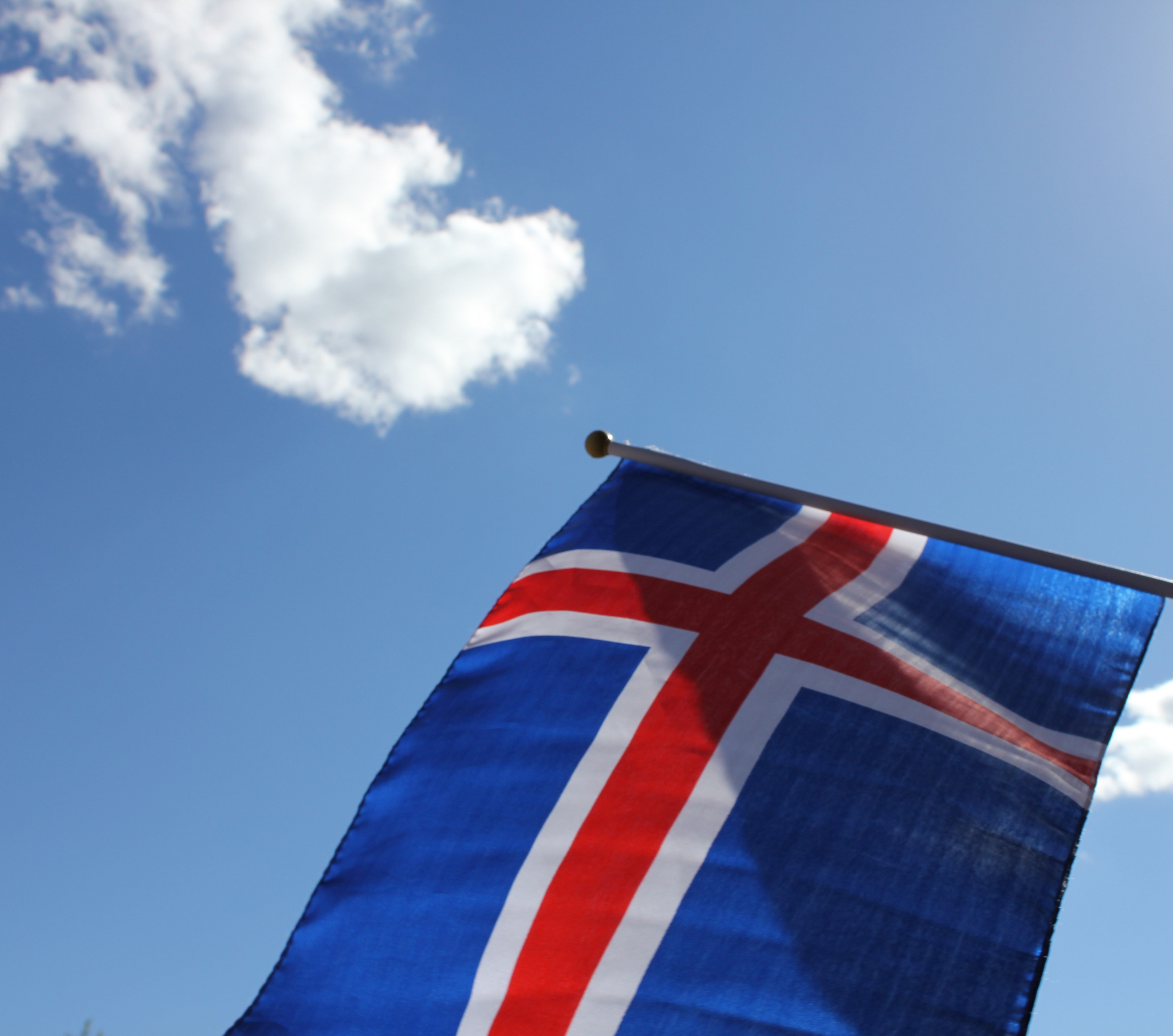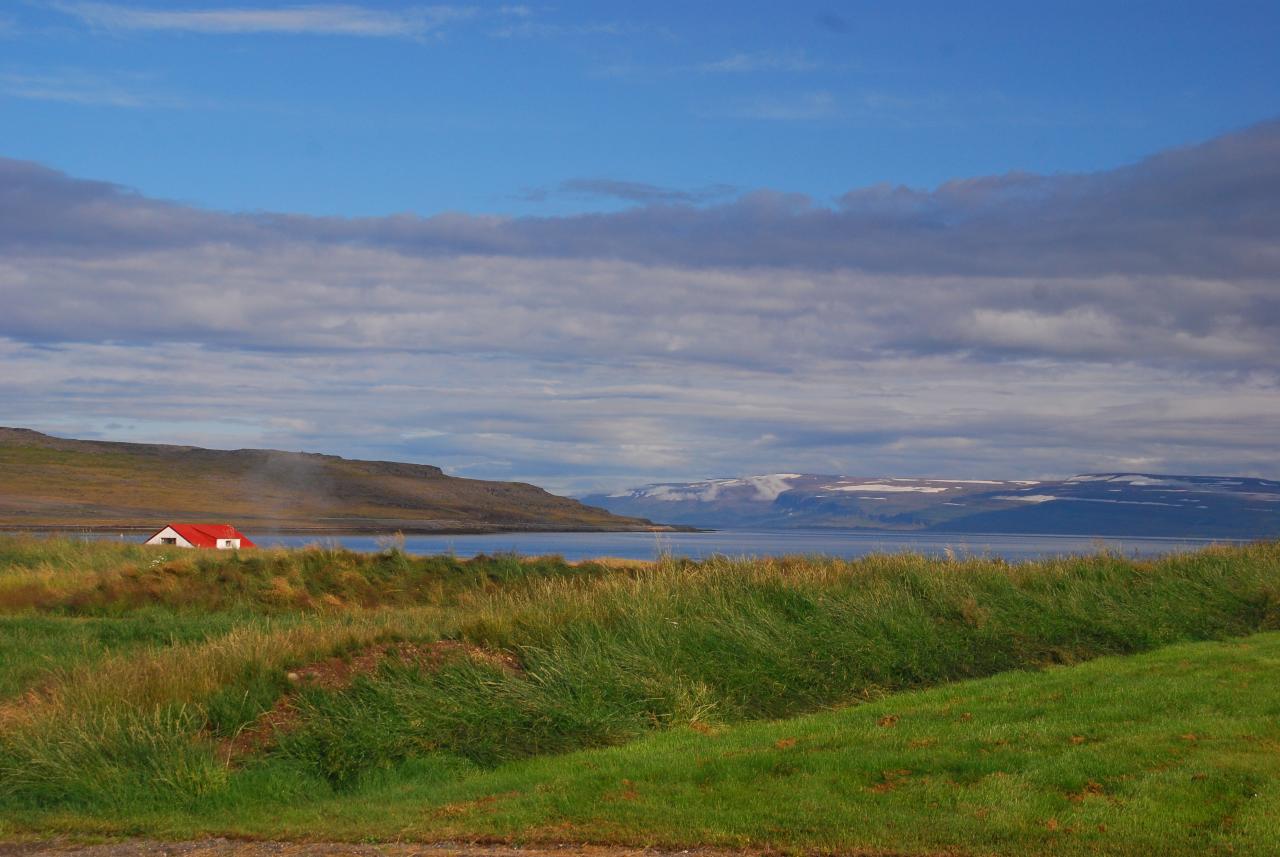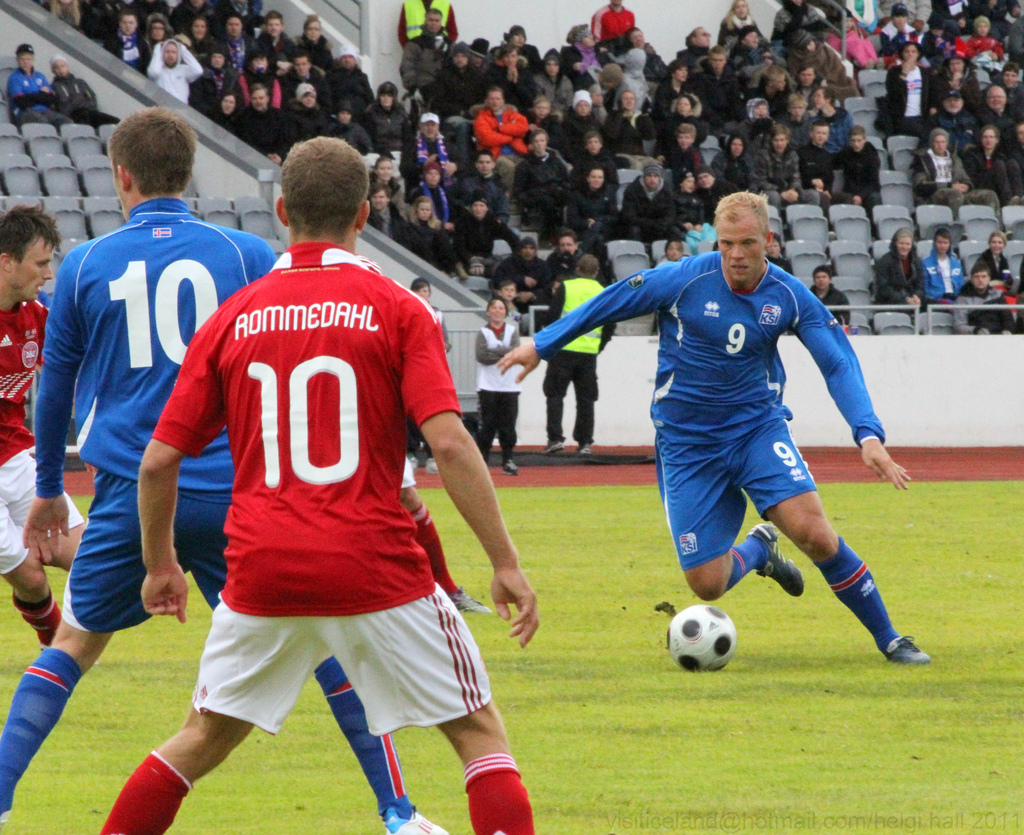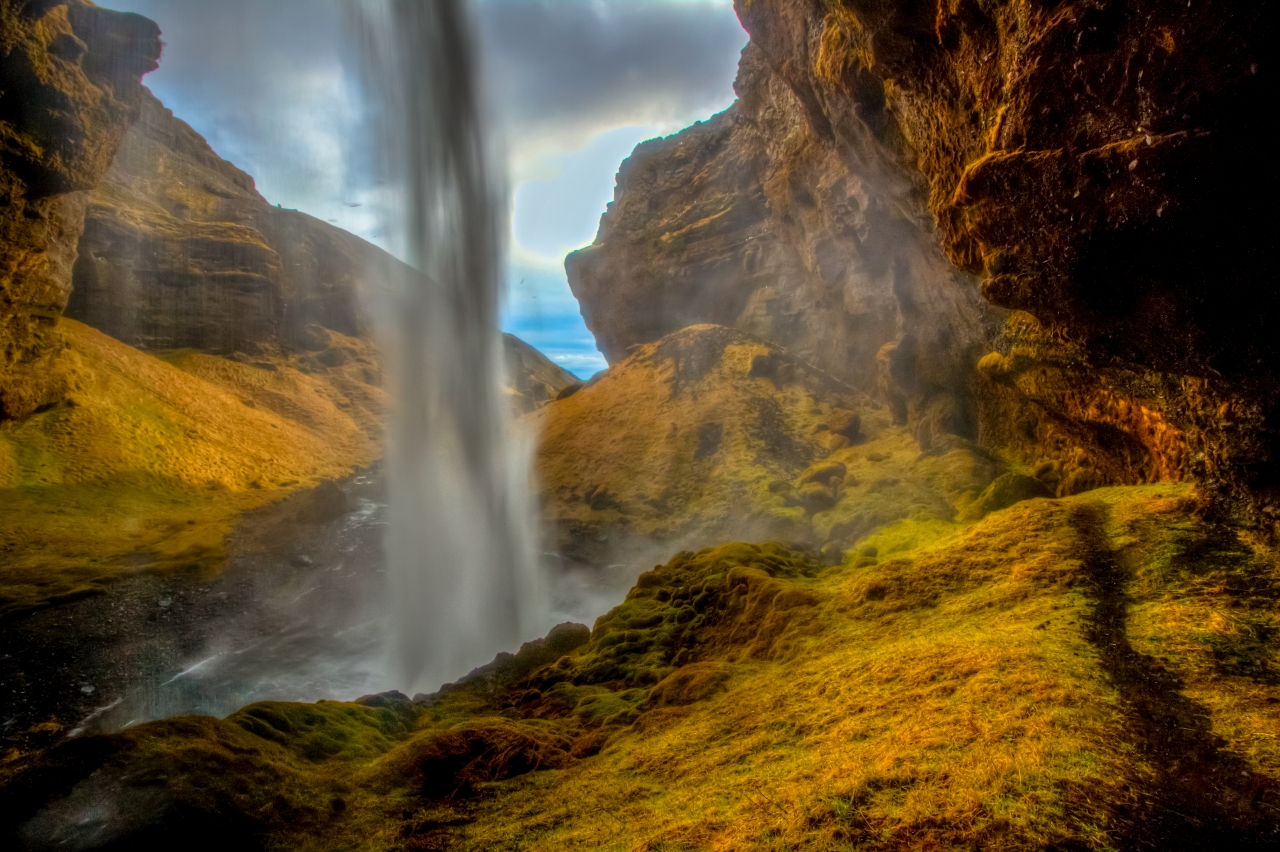Independently Icelandic. Posted by hulda on Jun 16, 2016 in Icelandic culture, Icelandic customs, Icelandic grammar
Guess what day tomorrow is? That’s right – Iceland celebrates its independence on the 17th June with Hæ Hó Jibbi Jei, það er kominn sautjándi Júní (= Hi Ho Yippee Yay, it’s come the 17th June), parades, bouncy castles and lots and lots of flags. I’ve already dug out my own 17th June kit well in advance but before we get to celebrating for real let’s look at things that make Icelanders fell really, well, Icelandic. Some are obvious, some may be less so.
The Flag
Starting with the obvious, obviously. 😀 Íslenski fáninn (= Icelandic flag) as its official name stands, this will be a regular feature all day long tomorrow. Everything will be mostly blue with a hint of red and white. Everything. Clothes on people, streamers on shop windows, streets, walls, some ceilings, cotton candy and of course the flag itself. Only one building will be different from the rest; instead of the official flag they will be flying the hvítbláinn (= white-blue), and its name gives you a clue to how it looks like… it’s the Icelandic flag without the red cross in the middle, just a white cross on blue background.
Hvítbláinn is older than Íslenski fáninn and was used during the Independence Struggle as, er, a kind of a huge middle finger at the Danish rule. It was first used by the Reykjavík Women’s Club who flew it on the national day on summer 1897, and by 1905 the design had spread across the whole country.
In the end the hvítbláinn had to step aside because it looked too similar to the Greek flag of the time and in its stead came what we now know as the Icelandic flag. The colours symbolize fire, ice and distant mountains (it’s a common mistake to think that the blue would symbolize the sea). As a proverb says, fjarlægðin gerir fjöllin blá (= distance makes the mountains blue), which can be taken two ways. First is that the further away mountains are the bluer they look, second is that the further away something is the more beautiful it seems. This proverb is commonly used to describe how Icelanders miss home the worse the further away they are from Iceland.
Home
Iceland has many names ranging from landið (= the land) to klaki (= piece of ice), but one word has a stronger impact than most: heim (= home). A great example can be found listening to the Icelandic crowd at the football world championship games singing Ég er kominn heim (= I’ve come home) right before the match with Portugal, go listen to it here and wait… just wait for the moment when the Icelandic football fans sing the line “ég er kominn HEEEIIIIIMM!!!” In fact, just go listen to it because it’s a beautiful song and the performance is really heartwarming!
Besides this I’ve another funny little anecdotal story regarding Iceland as “home”. It’s when you fly to Iceland and the plane staff announces in both Icelandic and English that you’ve landed to Iceland, but unlike any other country I’ve ever flown to the Icelandic version of the announcement welcomes people home. Literally. No “welcome to Iceland”, it’s “welcome home”.
Iceland never loses
Icelanders have an amazing Iceland-will-always-win spirit, especially when it comes to sports. International games are cause of huge celebration well ahead of time, they’re followed almost religiously and take over the daily life via internet, newspapers, radio, television and more. Before the Iceland vs. Portugal football game many shops were advertising special offers that would only come to be if Iceland won the game against Portugal, to name one example.
The ending was a 1-1 tie so obviously all those offers were on today. Iceland totally won by a crushing end result of 1-1, or at least that’s how it was considered over here. In fact I find this a very Icelandic thing: in the opinion of Icelanders Iceland always wins, even when they don’t win. Losing a game does not mean the Icelandic team was worse, just that losing happened but you know, like the president’s wife would put it, Island er stórasti land í heimi, Iceland is the biggerest country in the world.
By the way, Icelandic football fans are fierce and terrifying. Listen to this!
Nature
No big surprises here either, Icelanders are connected to the nature of this icy little rock with unusual passion. Yes, life’s always been hard here and food has been hard to come by. Yes, the weather’s awful and that’s if you’re lucky. Yes, every now and then it feels like the land itself is actively trying to kill you. Yes, the Voluntary Rescue Units are made of gold and without them we (and our tourists) would be in so much more trouble, because heading into the wilderness in Iceland is always some level of a risk.
None of this is that important though because storms come and go, and when they’ve blown over the land is still as beautiful as ever. When you wake up in the middle of a light summer night and listen to the hrossagaukur (= common snipe, although the literal translation is “horse cuckoo”) purr as it flies over your tent or when you arrive to the top of a mountain after a few hours climb and look around you you’ll gain an idea of what this connection feels like.
Tomorrow is a big day so let’s get ready in advance and do my favourite type of language studying: singing along Icelandic songs! I’ve selected a few that fit perfectly in the spirit, so please go have a look and have fun studying vocabulary, pronunciation and culture in fun little packages.
Hæ hó jibbi jei/Hi ho yippee yay (link). This is not Iceland’s national anthem but it’s almost considered as one.
Lofsöngur/Song of Praise (link). This IS the national anthem. It takes some serious singing range and skills to perform, good thing Icelanders tend to be good at singing.
Heyr Himnasmiður/Hear Heavenly Smith (link). Ever since a group of Icelandic lads sang this at a train station and their performance became world famous people have linked the song to the country, and with a good reason. It’s very Icelandic in style (old Icelandic metre), melody and topic.

Build vocabulary, practice pronunciation, and more with Transparent Language Online. Available anytime, anywhere, on any device.
About the Author: hulda
Hi, I'm Hulda, originally Finnish but now living in the suburbs of Reykjavík. I'm here to help you in any way I can if you're considering learning Icelandic. Nice to meet you!



